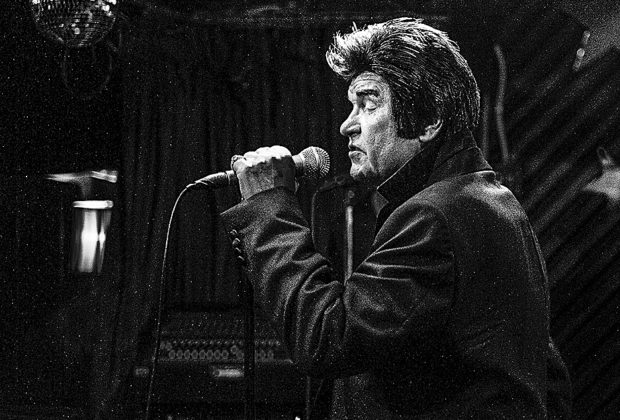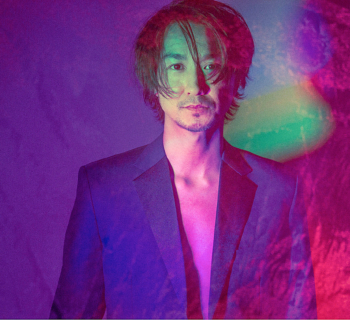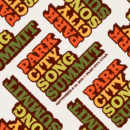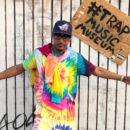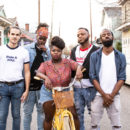After six decades in the music business, pop legend Jimmy Angel (born James Oliver Tyler) remains the epitome of a 1950s teen idol. At 85 years young, his latest record, Love Fever, is anything but a tribute album. The vocals are true to a bygone era, but Angel’s new recordings mark a perfect combination of a classic feel and fresh interpretations, drawing inspiration from long-lost friends and ’50s Americana.
“The guy is like a time machine,” bubbles Angel’s producer-guitarist Jason Guiterrez. “It's a sound that just doesn't exist anymore. He has this great sense of humor––he's a character. He’s a classic ’50s rock & roll character and persona, and his voice is great. Several of the final vocals were scratch vocals because they were just so good.”
Angel’s start was certainly unconventional. As a scrappy aspiring baseball player, he was propelled to pop stardom after being plucked from a Memphis record store by underlings of mobster Joe Colombo. He was also assisted by Ted Simonetti, manager for Louis Prima and Keely Smith, who said, “Hey kid, you look like Elvis and Ricky Nelson. You wanna be a singer?”
“If you’re a kid living in the projects with sawdust for floors,” Angel recalls, “you’d do anything you could to get your mom out of that. I took the contract and I left.”
Angel spent months listening to Elvis Presley, Buddy Holly and Gene Vincent, teaching himself to sing in the Manhattan apartment set up for him, while taking rigorous dance and acting lessons. Simonetti took him to Laurie Records to record “Teenager In Love,” resulting in the gold record that launched his career. Touring followed with Alan Freed, alongside Sam Cook, Little Richard, Etta James and others. He did what he was told, played the best clubs for years and was treated like a prince.
In the early years of rock & roll, the music business was a profit center for the mob and, as Angel’s success grew, so did attention from Joe Columbo, aka Papa Joe, who helmed Angel’s career from behind the scenes. For more than a decade, Joe was the father Jimmy never had.
Angel’s regal life screeched to a halt with the shooting of Papa Joe in New York in 1971. By then, despite teen idol status, no label could overlook mafia ties. With 38 top-label singles under his belt, Angel left for Japan on veteran crooner/producer Pat Boone’s hunch that Angel’s teen idol image and 10 gold records would make him a hit. For 30 years, Angel dazzled as “Bopper-San,” often performing four times a night, six nights a week, appearing in magazines and on radio stations and TV, and even securing a role in 2003 Japanese hit comedy, Get Up!, about the Japanese Mafia kidnapping James Brown.
Following the 2011 earthquake and tsunami that devastated Japan, Angel was reborn in Los Angeles. Friend Peter Lovio invited Sal Guitarez and son Jason Gutierrez to see Angel at a songwriter event. By 2012, the Jason Gutierrez Three were L.A. regulars, and Boone expressed interest in making a record with Angel. Love Fever ensued as a labor of love and, once recording finished, Boone’s Gold Label took it on.
“What’s amazing,” Gutierrez says, “is that they really scored with Jimmy because he turned out to be the real deal.” Angel’s voice has remained powerful, which he attributes to not having succumbed to the partying and drinking that destroyed many of his contemporaries. He has never been arrested, doesn’t drink or smoke, and downs milk on stage, to “protect my throat like a bulletproof vest.”
“Show respect on stage,” Angel advises. “Don’t turn your back on the audience. Don't drink on stage, don't smoke on stage. Whatever type of cat or chick you are, get them right between the eyes like a fastball. Be a team player and realize nothing happens without the muscle and the hustle. No matter what kind of music you write, sing, play, you have to find that combination. No one plays alone. No one makes a record by themselves.”
Contact: Dana McElwain, Pat Boone's Gold Label,dana@goldlabelartists.com

